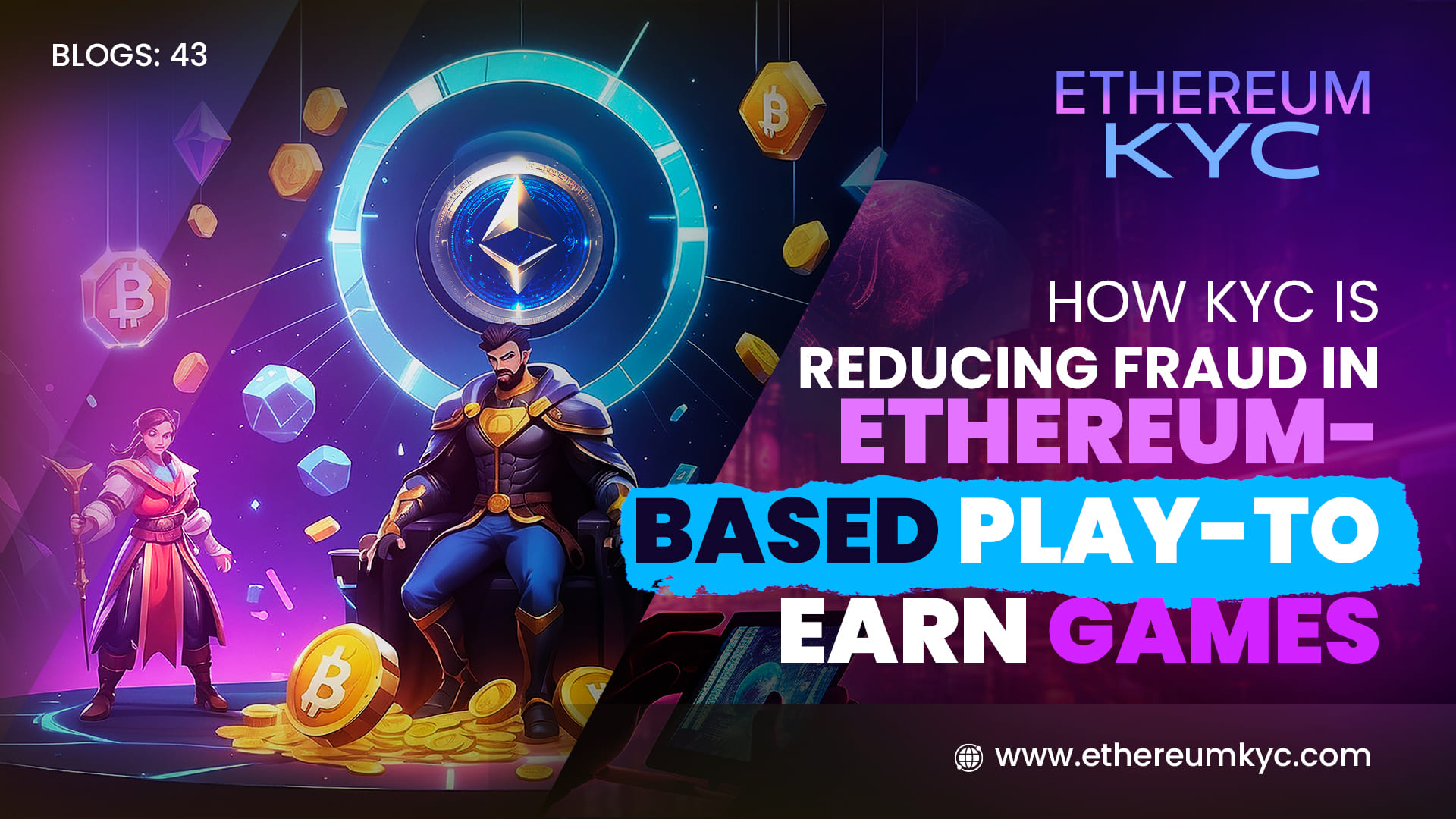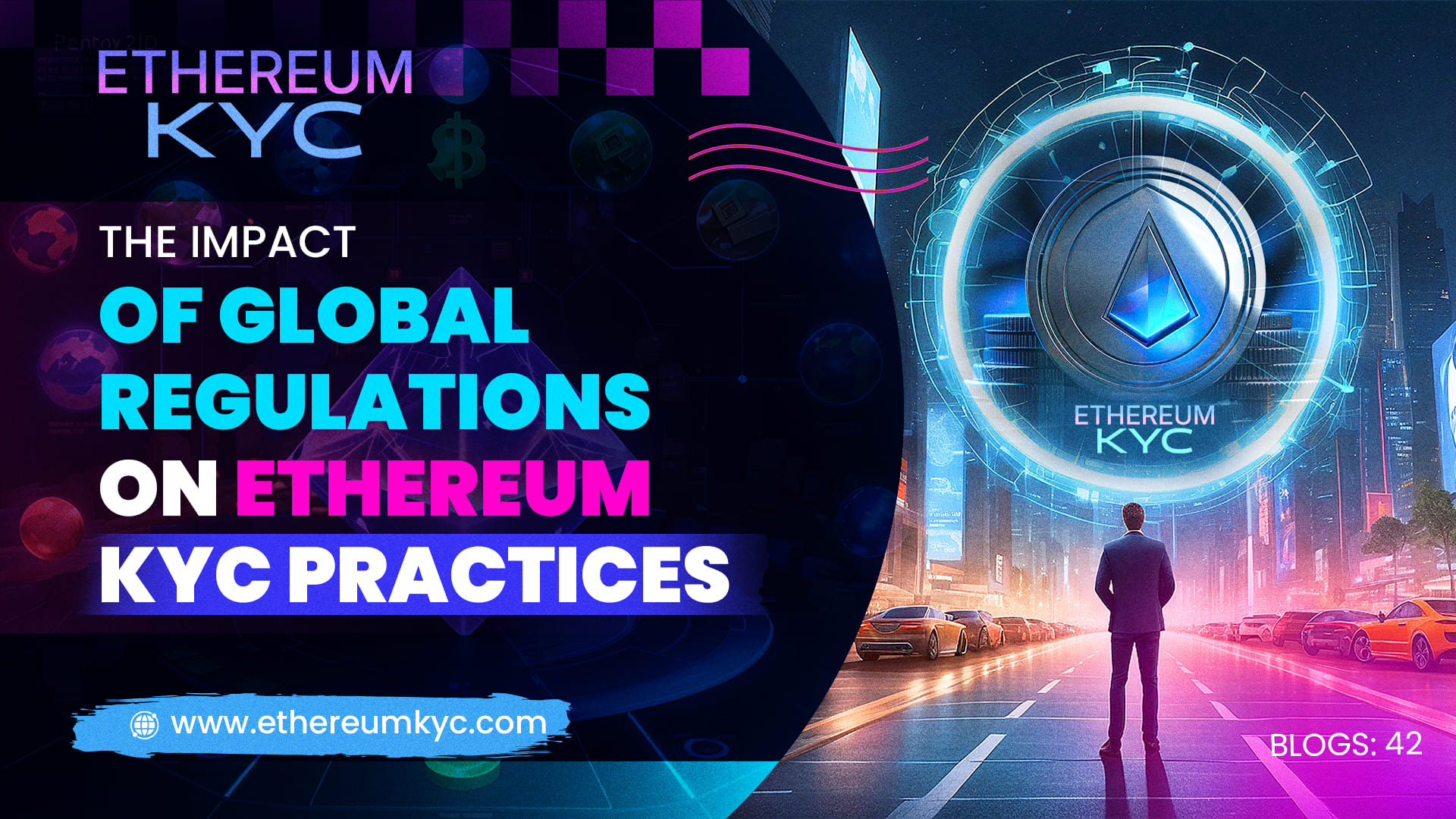February 3, 2025
How Smart Contracts Can Automate KYC Processes on Ethereum
As decentralized finance (DeFi) and blockchain technology continue to gain traction, efficient and secure Know Your Customer (KYC) processes are more important than ever. Traditional KYC methods can be time-consuming, costly, and prone to human error. However, smart contracts on Ethereum offer a transformative solution by automating these processes, enhancing security, and ensuring compliance with regulatory standards.
Understanding Smart Contracts and KYC
What Are Smart Contracts?
Smart contracts are self-executing agreements with the terms of the contract directly written into code. They operate on the Ethereum blockchain, ensuring that transactions are executed automatically when predefined conditions are met. This automation reduces the need for intermediaries and minimizes the risk of human error.
The Role of KYC in the Blockchain Ecosystem
KYC is a critical component in preventing fraud, money laundering, and other illicit activities. It involves verifying the identities of users before they can participate in financial transactions. In the context of blockchain, effective KYC processes are essential for building trust and ensuring regulatory compliance, especially as traditional financial institutions begin to collaborate with decentralized platforms.
How Smart Contracts Automate KYC Processes
Automated Identity Verification
Smart contracts can streamline the identity verification process by integrating with decentralized identity (DID) solutions. Users can submit their credentials, which are then encrypted and stored on the blockchain. Once verified by a trusted third-party or through decentralized networks, the smart contract automatically updates the user’s status, granting access to the platform.
Reduced Manual Intervention and Faster Onboarding
By automating the KYC process, smart contracts eliminate the need for manual reviews. This not only accelerates user onboarding but also reduces the administrative burden on platforms. Faster onboarding means users can participate in token sales, lending, and other financial services more quickly, enhancing overall user experience and operational efficiency.
Enhanced Security and Data Privacy
Smart contracts ensure that sensitive user information is encrypted and stored securely on the blockchain. Advanced cryptographic techniques, such as zero-knowledge proofs, allow users to verify their identity without exposing the underlying data. This privacy-preserving approach mitigates the risk of data breaches and unauthorized access, providing a secure framework for KYC processes.
Compliance and Transparency
Regulatory compliance is a significant challenge for decentralized platforms. Smart contracts create an immutable record of all KYC transactions, making it easier for platforms to demonstrate compliance during audits. This transparent process builds trust among regulators, investors, and users, facilitating smoother integration with traditional financial systems.
Real-World Applications and Future Prospects
Use Cases in DeFi and Token Sales
Many decentralized platforms are already leveraging smart contracts to automate KYC processes. For example, token sale platforms use these contracts to verify investor identities automatically, ensuring that only compliant participants can invest. Similarly, DeFi lending platforms utilize automated KYC to maintain secure and compliant ecosystems.
Scaling KYC in a Global Digital Economy
As blockchain adoption grows, the ability to scale KYC processes efficiently becomes increasingly important. Smart contracts offer a scalable solution that can handle a large volume of transactions without compromising security or performance. This scalability is crucial for supporting global digital economies where rapid and secure identity verification is a must.
Conclusion
Smart contracts on Ethereum are revolutionizing the way KYC processes are managed by automating identity verification, reducing manual intervention, and enhancing security. By leveraging these innovative technologies, blockchain platforms can streamline user onboarding, ensure compliance, and build a more secure and efficient financial ecosystem. As the digital economy continues to evolve, the automation of KYC processes through smart contracts will be pivotal in driving the next wave of innovation in decentralized finance.






